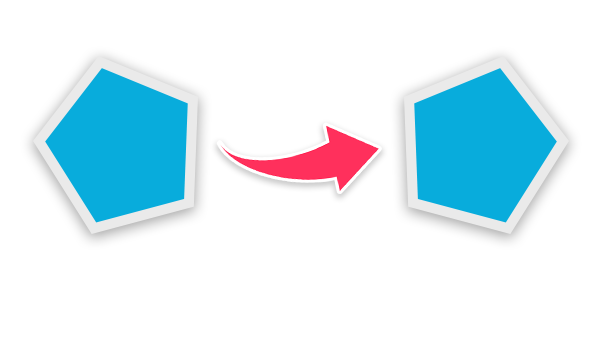In geometry, transformations are changes that are made to a geometric shape or figure. There are several types of transformations that can be applied to a geometric shape, including translations, rotations, reflections, and dilations.
A translation is a transformation that involves moving a shape to a new location on the same plane without changing its size or orientation. To perform a translation, a shape is “slid” to a new position on the plane.
A rotation is a transformation that involves turning a shape about a fixed point, known as the center of rotation. The angle of rotation determines how far the shape is turned. Rotations can be clockwise or counterclockwise.
A reflection is a transformation that involves flipping a shape over a line of reflection. The line of reflection is a line that the shape is “mirrored” across. Reflections can be horizontal, vertical, or diagonal.
A dilation is a transformation that involves changing the size of a shape. Dilations can be either enlargements or reductions. The center of the dilation is the point about which the shape is scaled.
Transformations are an important concept in geometry because they allow for the manipulation and analysis of geometric shapes. They are used in a variety of fields, including architecture, engineering, and computer graphics.
In addition to their practical applications, transformations are also an important mathematical concept. They are often studied in geometry courses as a way to understand the properties of geometric shapes and how they can be changed and manipulated.
Overall, transformations are a vital tool in geometry that are used to change and analyze geometric shapes. Whether you are working with simple geometric figures or more complex ones, a strong understanding of transformations is essential for success in many fields.

